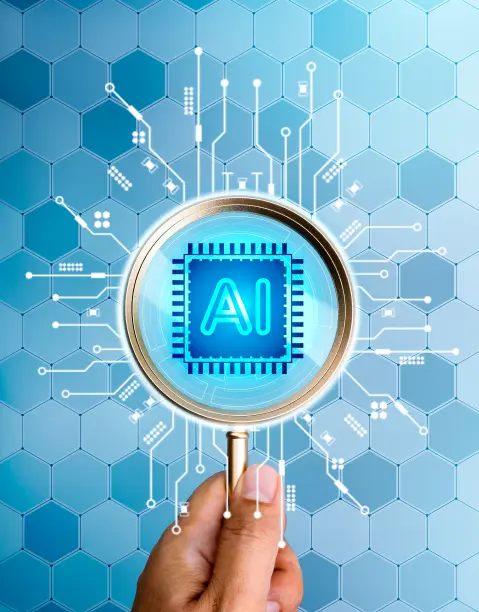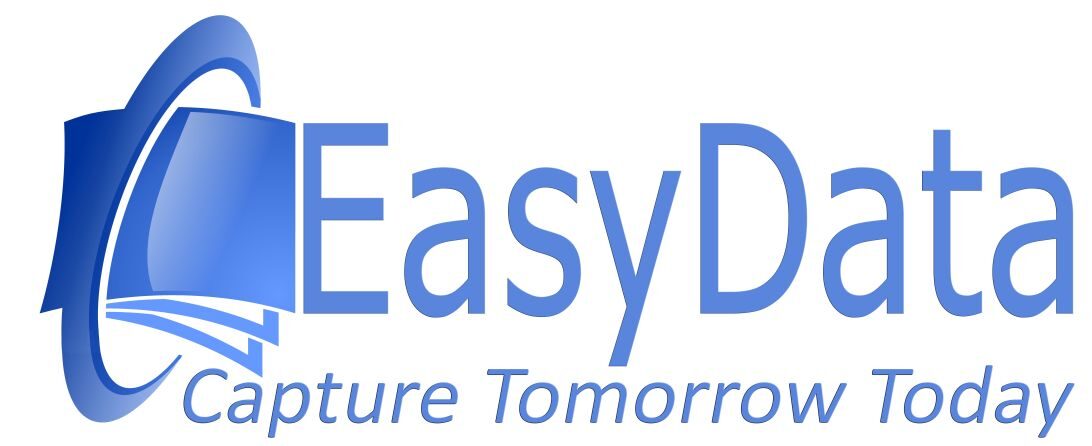Get Ahead,
Outperform Your Competitors
Together we achieve efficiency, scalability and a lasting competitive advantage in the rapidly changing market
Start Your AI Transformation
What does artificial intelligence do for your organization?
Artificial intelligence and ChatGPT… With the arrival of ChatGPT, we receive questions almost weekly about how we use ChatGPT, or whether ChatGPT is the ‘secret’ behind our unique results. However, for Dutch businesses, AI means much more than generic chatbots – it means concrete cost savings averaging 70% and time savings of 2+ hours per day per employee.
📚 AI Definition for Business
“AI enables computers and machines to perform tasks that we normally only expect from humans: learning, thinking and making decisions. In short, it is smart technology that mimics human intelligence to solve business problems, from automated advice and language understanding to speech recognition and image analysis.”
Formally summarized, artificial intelligence is a simulation of human intelligence processes in computer systems. Think of expert systems, natural language processing, speech recognition and computer vision.
EasyData is not limited to existing Machine Learning algorithms. We assemble these ourselves or convert existing algorithms into effective models that perfectly match your business needs. Unlike generic AI chatbots like ChatGPT, EasyData specializes in business process automation specifically tailored to SME enterprises:
Without the human component that creatively connects different technologies with expert knowledge, artificial intelligence solutions continue to deliver soulless results. EasyData artificial intelligence developers overcome these limitations. Through our 25+ years of experience in data automation, we combine human creativity with advanced machine learning algorithms.

How does artificial intelligence work in practice?
The practical implementation of AI at EasyData always begins with a clear picture of your specific business challenge.
Unlike generic AI solutions, we develop custom algorithms that seamlessly integrate with your existing systems.

The EasyData AI Development Process
🔍 Process Analysis
We analyze your work processes and identify automation opportunities. On average, we discover 2+ hours of time savings per day per process.*
🧠 Machine Learning Training
Our AI engineers train specific algorithms with your data. Through our advanced technology, we achieve 98% accuracy in weeks.
⚡ Self-Correction During Development
Our AI systems improve themselves during the development process and continue to ‘learn’ even after implementation.
*Results based on internal measurements at various clients, during the period 2020-2024. Individual results vary by organization and sector.
The Business Side of Artificial Intelligence
❌ Traditional Approach
- Employees spend 1 day per week on administrative tasks
- 85% frustration with document data quality issues
- Hidden costs of €100K+ annually for 1000 documents/month
- Error correction costs up to €50K+ per year
- Manual document processing of 6+ hours daily per team
✅ With EasyData AI
- Smart automation of repetitive tasks
- High accuracy in all document processing
- Significant cost reduction on operational processes
- Achieve real time savings per process per day
- ROI within one year is often possible
Discover how AI can improve your work, contact us for a personal, customized experience that goes beyond standard solutions.
Take a Close Look at Your Processes
In combination with artificial intelligence, automation tools can increase the volume and types of tasks performed. An example of this is Robotic Process Automation (RPA). RPA is a type of software that takes over repetitive tasks from the human operator.
🤖 RPA + AI = Exponential Efficiency
In combination with separate machine learning networks, RPA can automate interesting parts of individual business tasks.
Additionally, tactical RPA bots can pass on the intelligence of artificial intelligence to other process components.
If you set up such an architecture smartly, RPA bots can respond to changes in the process and thus,
within the scope of the stated automation objectives, autonomously contribute to a more effective business process.

Intelligent Process Automation in Practice
🤖 Smart RPA Bots
Our RPA bots are equipped with AI intelligence allowing them to respond to changes in processes and make autonomous decisions within set parameters. They continuously learn and improve.
📋 Document Processing
Combination of AI and RPA for complete automation of invoice processing, contract analysis and compliance checks with high accuracy. From input to archiving fully automated.
📊 Real-time Monitoring
AI-driven dashboards that monitor process performance and proactively warn of potential bottlenecks. Predictive analytics enable preventive intervention.
💡 Grow Faster and Save Costs?
The goal of these insights is to approach AI from a new perspective: what can you do with it and how does it actually make your processes more effective? EasyData offers practical and actionable support to immediately deploy AI for measurable optimization of your business processes.
Request a no-obligation consultation today.
Ready to Start with Smart Automation?
Join the companies that have transformed their processes with EasyData AI. From wasteful repetition to smart automation, reduce errors to higher accuracy.
🚀 You Often See Results Within 8 Weeks
✅ Significant cost reduction on repetitive processes
✅ Achieve real time savings per day per employee
✅ High accuracy in document automation
✅ GDPR-compliant with Dutch data center
✅ Stay independent – always maintain control over your systems
✅ 25+ years of Dutch expertise in business automation
Frequently Asked Questions About Artificial Intelligence
What is the difference between AI and machine learning?
Artificial intelligence is the umbrella term for systems that mimic human intelligence. Machine learning is a part of AI where computers learn from data without being explicitly programmed. EasyData combines both technologies for optimal automation results.
How much does AI implementation cost for my business?
Costs vary per project, but on average an AI investment pays for itself within 6-12 months. EasyData always offers a free analysis in which we make concrete ROI calculations based on your specific processes. Most projects start from €25,000.
Is my data safe with AI automation?
Yes, EasyData guarantees 100% data security according to Dutch and European standards. All data stays within the EU, we comply with GDPR requirements, and you always retain ownership of your own data. No vendor lock-in situations.
Can AI be integrated with my existing systems?
Absolutely. EasyData specializes in seamless integrations with existing business systems. Our AI solutions work together with your current ERP, CRM, and other software without disrupting ongoing processes.
How long does an AI implementation take?
A typical AI implementation at EasyData takes 6-8 weeks from analysis to go-live. Simple automation projects can be operational within a few weeks, more complex systems require somewhat more effort, but you’ll see the first results within 2 weeks!
Which sectors benefit most from AI automation?
All sectors with repetitive processes benefit from AI. Financial services, healthcare, manufacturing, logistics and government see the greatest benefits. EasyData has proven expertise in automating document processing, compliance checks and customer service.
Does AI replace my employees?
No, EasyData AI is designed to support employees, not replace them. AI takes over repetitive tasks so your team can focus on strategic and creative work that adds more value. Result: higher employee satisfaction and business productivity.
What happens when the AI software needs to be updated?
EasyData provides continuous support and updates. Our AI systems can improve themselves and learn from new data. Major updates are always announced in advance and tested in a safe environment before implementation.

